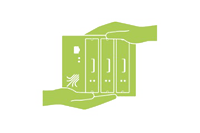Unbelievable, what bonding DSL, UMTS and LTE makes possible
Getting On Board And Online
Luxurious river cruises require not only impressive logistics but also an extensive understanding of customers’ needs. Especially in the five-star segment, it’s no longer enough to provide star-cuisine, exquisite bedding and well-balanced leisure activities. Customers also demand to get online whenever they choose, via the same broadband Internet they’re used to at home or at work and keep in touch with family and friends or their coworkers via emails, photos, video conferences, but also use video-on-demand services etc. As leading network-independent connectivity specialist in the field of Machine-to-Machine (M2M) communication, M2MBlue is an expert when it comes to providing river cruise vessels and super yachts with the broadband connectivity they desire. And here’s why M2MBlue counts on Viprinet technology to help fulfill these high-speed demands.
Mobile radio broadcasting in Norway
Outdoor live broadcasts from remote areas are generally considered the ultimate test of mobile network solutions. Industry requirements for these kinds of deployments include many challenging features, all of which come with the expectation of low operational costs: ample bandwidth, continuous uptime, low latency, and quick, simple set-up. P4 Radio, Norway’s leading private radio station has nearly a 25% market share, a million daily listeners, covers many tours, and frequently broadcasts from remote locations. To meet their exacting standards, they deploy Viprinet technology for mobile and remote connectivity.
Bringing call centers online
Reliable telecommunication systems are vital for each and every company - being unavailable and therefore unable to respond to inquiries means losing turnover. This is especially true for call centers and their business model based entirely on communication. So in this line of business reliability is of highest significance, particularly because communication channels require higher and higher bandwidths themselves, i.e. for video conferencing or VoiP use cases. KiKxxl, a communications provider headquartered in Osnabrück who has won a variety of awards over the years, is counting on Viprinet technology to ensure reliable internet connections for years already.






















